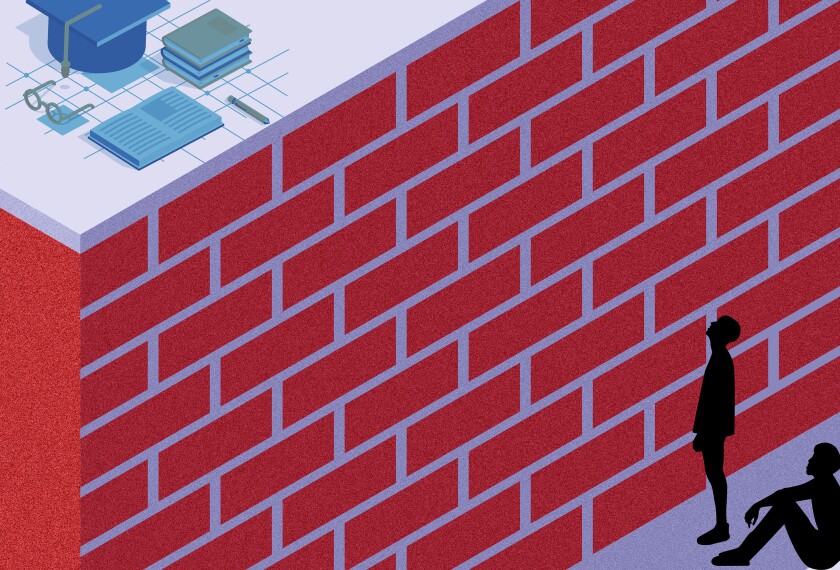As more states consider passing early literacy laws, one controversial aspect of these policies is back in the spotlight—grade retention.
Twenty-five states and the District of Columbia either allow or require districts to hold back students who aren’t reading proficiently by the end of 3rd grade.
Advocates of these policies say they’re a necessary component of effective attempts to improve early literacy, triggering additional support services for students who need them and ensuring that all kids are ready for the increased load of reading they’ll face in older elementary grades.
Opponents argue that holding students back introduces new social and emotional challenges for children, and that these policies can disproportionately affect students of color and students from low-income families. Schools can provide extra support and interventions for kids without holding them back a grade, they say.
Read on for three recent developments in retention policy and research.
1. Some states have paused retention requirements or gotten rid of them
In March, Michigan Gov. Gretchen Whitmer, a Democrat, that would remove the 3rd grade retention component from the state’s early literacy law.
The move, Whitmer said in a statement, would “put power back into parents’ hands so they can work with their child’s teachers and make decisions that are best for their family.” Republican legislators, all but one of whom opposed the repeal, maintained that getting rid of the requirement to improve students’ reading scores.
Other state legislatures have recently considered altering or pausing retention requirements.
In Tennessee, that would expand the criteria schools could use to show that students were prepared for 4th grade, and that would make it easier for parents to appeal retention decisions. If signed, the changes would go into effect for the 2023-24 school year.
And Alabama’s 3rd grade retention requirement is still on pause in the wake of a decision last year to delay the retention component of a 2019 literacy law. That decision was made after some lawmakers argued that it would be unfair to hold back students whose early elementary school years were disrupted by the pandemic.
2. New research affirms that retention alone isn’t as effective as policies with more support
The research on retention policies is notoriously mixed. Studies that examine holding older students back generally show negative social and emotional outcomes and little academic benefit. But some research on retaining younger, elementary students has shown promise. (For an overview of the evidence, see this story.)
Studies out of several states—including Florida, Indiana, and Mississippi—have shown that retention in these early grades is connected to improvements in student test scores and less remediation down the line.
But not all retention policies are created equal. In a for the Brookings Institution, researchers Umut Özek and Louis T. Mariano write that holding students back is more likely to lead to positive academic outcomes when retention also triggers additional instructional support for kids during the repeat year.
A new study finds similar results on a national scale.
Researchers at Michigan State University examined the effects of states’ early literacy policies between 2009 to 2018. They found that states that had a retention component as part of their laws saw higher gains on end-of-year standardized tests than states that didn’t.
But the states with the biggest test score increases were those that had comprehensive policies—teacher training, additional student support, and funding— in addition to retention. Read more about the findings here.
3. Retention has disparate effects—and some students can circumvent retention more easily than others
Another recent study, also from Michigan State University, analyzed the effect of the state’s now-defunct retention policy.
The researchers found that the requirement had inequitable impacts, holding back Black and low-income students disproportionately among students whose standardized test scores made them eligible for retention.
Even after the researchers controlled for multiple student and school factors, students from low-income families who scored below the test score cutoff for retention were still more likely to actually be retained than students from higher-income families who missed the cutoff.
The study didn’t examine how those disparities grew, but, it’s possible that differences in parent advocacy, knowledge, and social capital could be connected to whether families requested or were given an exemption, the researchers said. Read more about this study here.





